Context
The great power rivalries are back and this will be the focus of the American foreign policy, as declared by Trump previously, and President Biden recently. As opposed to continued concentrating on fighting the ‘unending wars’ and war against extremists the concentration will now be on global adversaries like China and Russia. According to a report released in April by the US Office of the Director of National Intelligence,
“China increasingly is a near-peer competitor, challenging the United States in multiple arenas especially economically, militarily, and technologically and is pushing to change global norms.”
But what does this mean in practical terms and world politics and how will these tussles play out? Moreover, what will indicate success in tilting the balance of power in the favor of one or the other?
There is plenty of unfinished business from the World Wars that can once again provide fodder for a wider conflagration. Another consideration is that as China and Russia resurge, are they turning into revisionist powers attempting to rectify the injustices of past as they perceive them or are they equal benefactors of the current order and thus motivated to sustain it. The answers are complicated.
The present flare up between Israel and Palestine is a case in point. Then consider the example of Kashmir; the unresolved conflict between two nuclear powers, India and Pakistan. Imagine what happened to the Ottomans and how the present-day Middle East came into being.
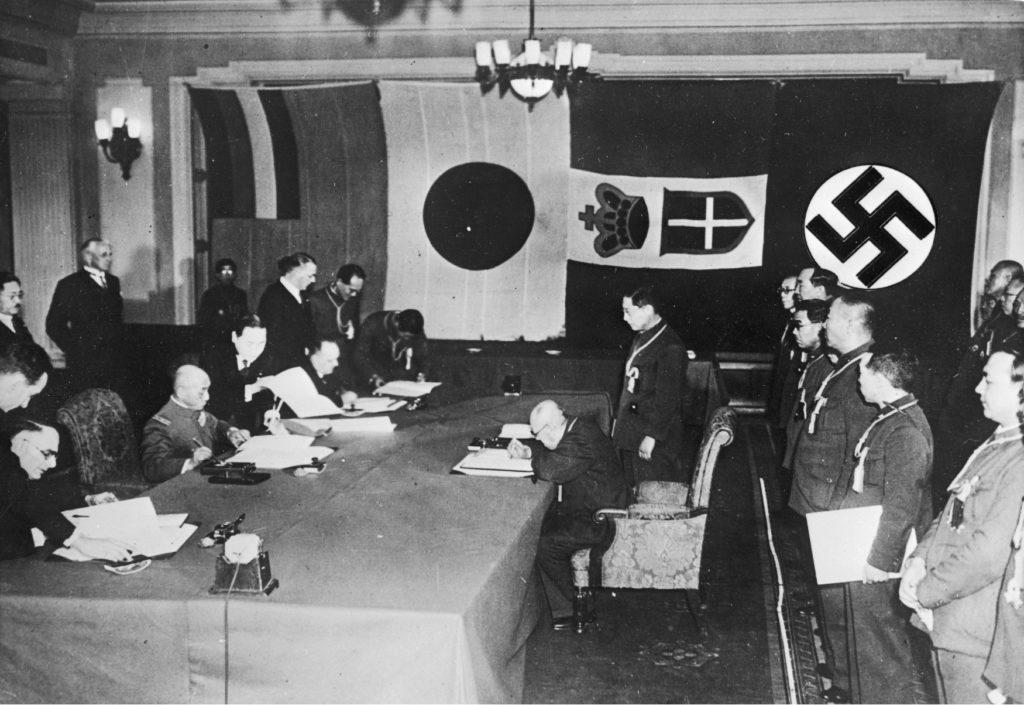
Analysis
The Past
Looking to the past helps to determine where one was, gives context to the complex and uncertain present, and explains proximity to the future.
When the present-day nation-state order was maturing, the great power tussles played along empires based on race and religion. It is interesting to note that about 1.3 million men from the subcontinent served in the British Indian Army in World War I and about 2.5 million in World War II. Many of these soldiers were Punjabis, Pathans, Sikhs, and Balochis and voluntarily fought at various fronts in the subcontinent, Middle East, Africa, and Europe. These Muslims often clashed with fellow Muslims, at the behest of the colonial powers of the time.
The back-and-forth civilization-based conflicts between Arabs, Turks, and Persians had been going on even before. In other words, politics in this part of the world, as in many others, has been eternally linked with ethnicity, race, and religion which were exploited by the colonial powers of the time.
Most of the strategic posturing of Jinnah and Gandhi, and Muslims and Hindus, was in relation to the World War II and what the aftermath would mean for their causes and interests.
The critical point in Jinnah’s position was his differentiation between the importance of local and regional interests vis-a-vis global ones. The local and regional interests translated into nationalistic interests as opposed to larger Pan-Islamic ones, in the post-World War II nation-state environment. In Jinnah’s calculation, more importance was given to what was attainable; he complied with the nation-state trend in opposition to Pan-Islamism the time for empires had passed. Not to forget, the transformation of Turkey into a State at the end of Ottoman Empire. And, it was not just Turkey. Virtually all the European empires had converted into nation-states toward the end of World War II.
The Clear and Present Dangers
How will the great power rivalry play out this time in the South Asia region and what are the emerging trends now that the present-day leaders would have to adjust to?
Pakistan has long accused India for fermenting trouble in its backyard, lately through Afghanistan, and supporting insurgents in Balochistan. Reportedly, India is also attempting to circumvent the projects being undertaken through China Pakistan Economic Corridor (CPEC). Not only that, it is attempting to internationally malign and politically and economically strangulate the nation. On the other hand, Kashmir remains an unfinished business of the partition and India has refused to abide by the UN resolutions and holding of the plebiscite. Pakistan claims it provides moral support to Kashmiris. For India, the resolution of Kashmir, by joining Pakistan or gaining independence, will open a Pandora’s Box as they have several active separatist movements ongoing.
The Sikhs of Punjab is another case in point, where the issue has recently come to the limelight through the ongoing farmers protests. Many Sikhs believed, at the time of the partition, Muslim and Hindus were given a choice by the British to decide their future but Sikhs were not afforded this opportunity. They have continued to suffer under the atrocities committed by the Union Government of India.
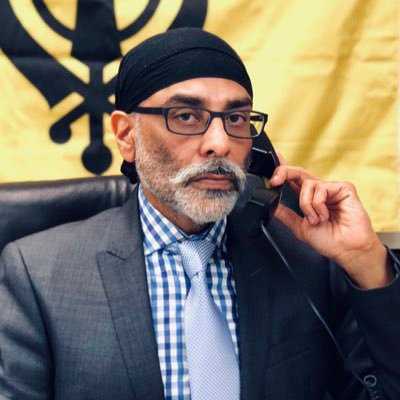
Sikhs for Social Justice
One organization that has taken up the case for Independent Khalistan is the US based group called Sikhs for Social Justice (SFJ) formed in 2007 under the leadership of Gurpatwant Singh Panu. Talking to PoliTact, he stated that now is the time to address this unfinished business of the partition and settle the ‘incomplete decolonization of India’. He went to add that Sikhs should be given the right to vote after seven decades of continuous violence and usurpation of Sikh religious identity. This started when Indian Constitution referenced Sikh religion as part of Hindu religion, and then dividing Punjab along linguistic basis but giving Punjabi speaking areas to other states making it a smaller entity. Therefore, SFJ is seeking a vote on if Sikhs want to rule themselves or allow India to rule.
SFJ propagates peaceful means to achieve this goal through holding a referendum under the auspices of Punjab Independent Referendum Commission and its partners. This referendum was planned in 2020 but has been delayed to 2021 due to Coronavirus epidemic.
As alluded above, before the partition Muslim and Hindu leaders were positioning themselves for what the end of World War II would look like. They supported the British in hopes that if it were to be successful, they would be able to get a favorable deal when the British depart from the subcontinent. But there were other leaders like the nationalist Subhas Chandra Bose, who sided with Nazi Germany and Imperial Japan, in attempting to end the British rule. And history informs, the Axis Powers lost, and things did not go well for Chandra Bose.
SFJ and Global Realignment?
Considering that US and India are strategic allies now and part of the Quad, has SFJ sought support from the US? Pannu answered he has not. At the same time, he added that US might say they would like to see a united India because of its economic interests, but he doubts that it would go against the UN charter which stresses all people have the right to self-determination. Similarly, western nations supported the right of self-determination of indigenous people in the case of USSR, Kosovo, and Kurds.
However, he went on to add, the Sikh diaspora is well organized and immersed in US, Canada, UK and EU, and they will be pressuring their political representatives to take on this issue to liberate Sikhs from ‘Indian occupation’ peacefully and democratically or they will no longer have their support. These “political representatives would have to represent their interests not those of the corporations,” he commented.
There are several conflicts that are backed by UN resolutions and have seen years of struggle and violence, but remain unresolved, for example Kashmir and the Palestinian issue. With this background, how hopeful is SFJ on achieving its objective. To this Mr. Pannu replied they are ‘very confident’ and there is nothing stopping them to attain their right of self-determination and come into existent as a nation-state.
He added, the first step is holding of the non-binding referendum, and after that they will approach the superpowers with the results. On the question of if he has contacted China and Russia for assistance, Pannu responded: “we are surely in touch with the lobbyists and discussing our game plan on how we are going to go about it after the referendum.”
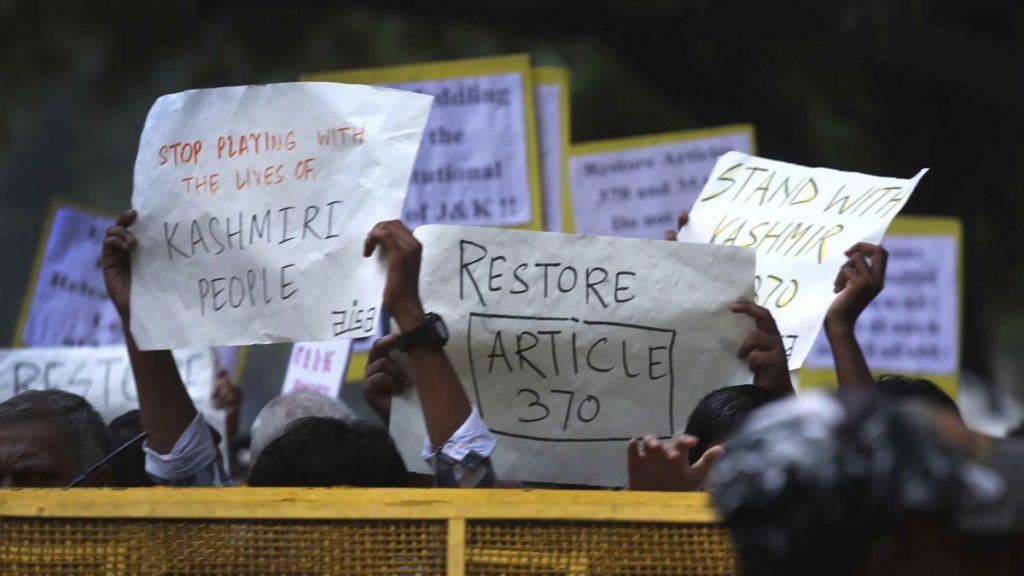
Kashmir and Khalistan
Reflecting on Kashmir, Pannu stated they are ‘not going to let neighbors be in the driving seat’, like Pakistan and China are in Kashmir. India and Pakistan are both to be blamed for the Kashmiri predicament. Kashmiris don’t need to fight with arms when the UN is on their side. Sikhs are in the driving seat when it comes to Khalistan and ‘we are not anyone’s puppet.’
There is also the question of the borders; what would constitute the boundaries of the future state of Khalistan. Mr. Pannu was emphatic in his answer; “the present-day Indian Punjab would constitute the state of Khalistan and those were the borders on August 15, 1947, when Sikh majority areas were given to India without their consent.”
In 2020, the Indian government declared Gurpatwant Singh Pannu a designated terrorist and outlawed the organization. Recent media reports indicate that the Indian government has requested the US to investigate him. When asked about this, Mr. Pannu stated he is not under any investigation and this is the propaganda of Modi government and neither has he been approached by any law enforcement authority in the US. In fact, he countered they have a case pending in Canada against Prime Minister Modi for human right violations.
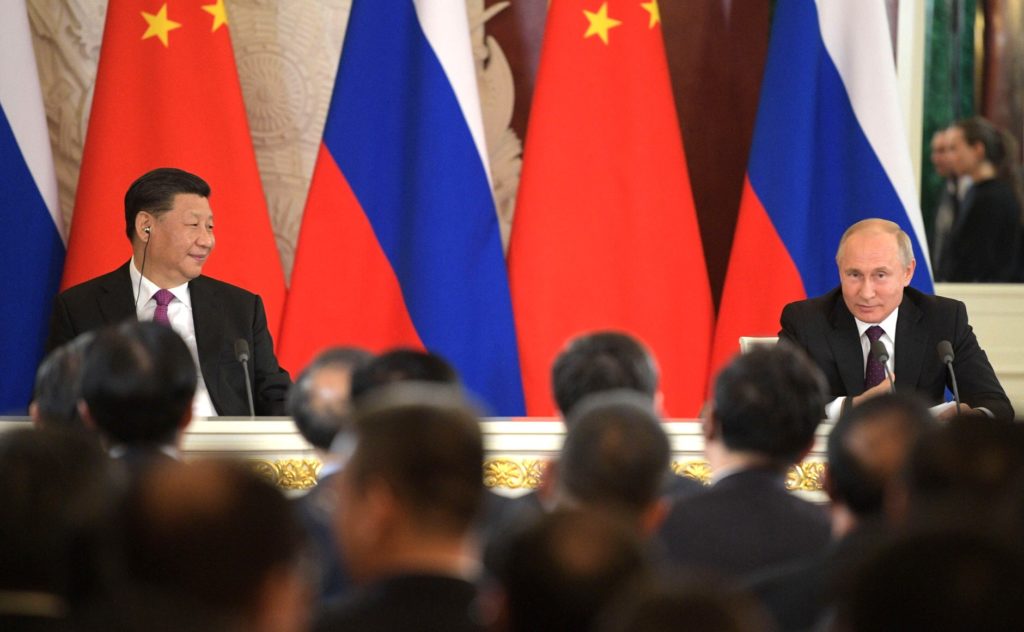
Future Scenarios
While at the time of the partition of the subcontinent the nation-state was the emerging trend the British were concerned about Russian encroachment from Central Asia through Afghanistan, while on the Pacific side it was the Japanese.
Now US-India strategic alliance is growing and so is the Quad alliance, recently China-India border tensions have also increased. This has especially been the case in the aftermath of the August 5, 2019 Indian decision to revoke Article 370 of the constitution, which affords special status to the state of Jammu and Kashmir. The move particularly irritated China and perhaps led to the subsequent skirmishes in the Ladakh region. It indicated that India was unilaterally moving ahead with settling the unfinished business of the partition.
On the other hand, while Pakistan has remained allied to US since independence, it has gradually moved closer to China. China and Russia are strategic allies, and along with India, they share membership in the now almost defunct organization of the emerging states, BRICS (Brazil, Russia, China, India, and South Africa).
As the great power rivalries escalate once again, the separatist movements in India are likely to get support from China and Russia, while those in Pakistan, in all likelihood, will get Western backers along the same footings as the Kurds have.
India will be once again afraid of threats, as it is, emanating from Afghanistan this time with the support of China and Russia especially now that US troops withdraw from Afghanistan. In the North and to the East, it is also China, replacing Japan from earlier times.
As discussed above, while most of the leaders at the time of the partition had placed their bets on the Allied powers, the gambles presently include China and Russia. In this, the movements that reflect the unfinished business of the past, like SFJ, Kashmir, and Palestine, will now also look to China and Russia for salvation. According to some reports, Russians have played an important role in the present de-escalation of Israeli- Palestinian conflict and China aspires to play an active role.
The key question also becomes what is the shape of the emerging order? While in the past it was the nation-state replacing empires and occupied colonies, will great power rivalries now lead to a wider conflict, followed by replacement of the nation-state system and new maps?
The leaders of these movements that represent the unfinished business of World War II, will play a key role in the shifting the balance of power, just like the Arabs did by siding with the British and fighting with the Ottomans.
On the other hand, the West increasingly face a test from its diaspora, as they exert political muscle. Just as the recent escalation of the Israeli- Palestinian conflict indicated that politics and policies cannot continue as usual. Democratic systems would have to balance the interests of its minority populations so justice can be done and to maintain the moral high ground. Not doing so, will only allow anti-democratic and supremacists forces to grow even more stronger and attempt to turn the clock back. And this should be an important aspect of the ‘infliction point’ President Biden has made repeated inferences to.


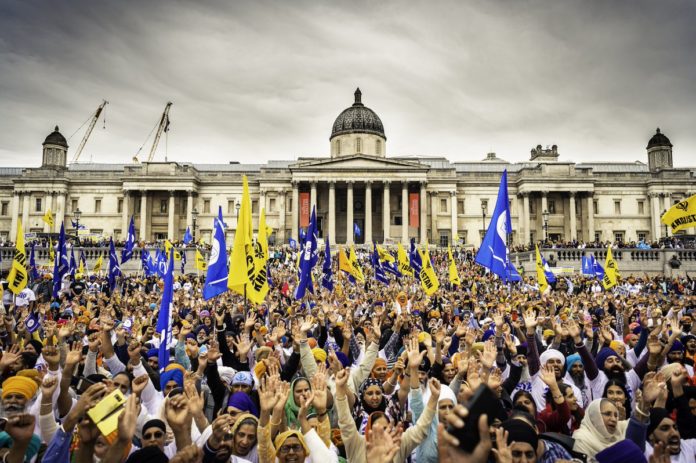


Ma sha ALLAH
informative